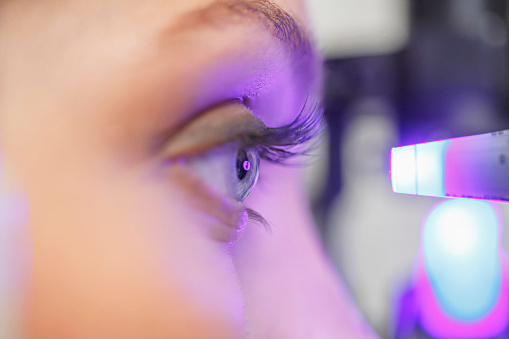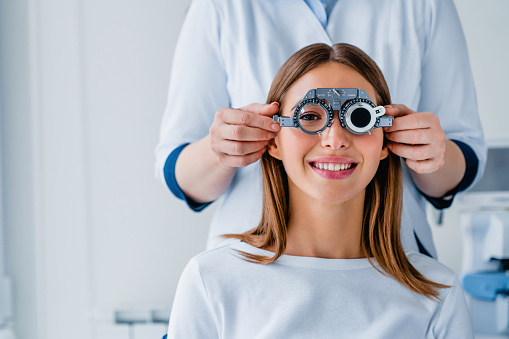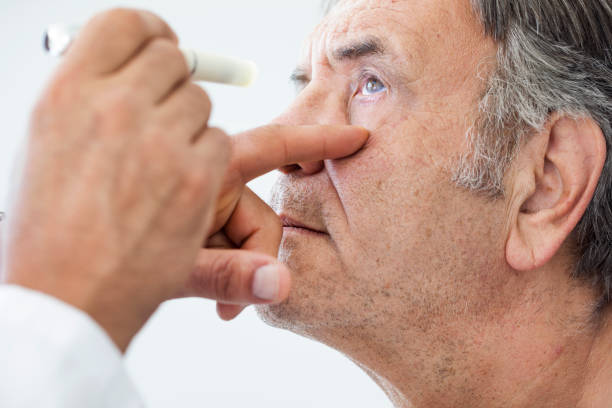
Eye health is crucial for our overall well-being. In this article, we will explore ten valuable tips that will help you maintain optimal eye health in 2023. By following these simple yet effective practices, you can take proactive steps to care for your eyes and promote good vision.
Tip 1: Eat a Healthy Diet
A nutritious diet plays a vital role in maintaining eye health. Include foods rich in vitamins C and E, zinc, omega-3 fatty acids, and lutein/zeaxanthin in your meals. Leafy greens, citrus fruits, oily fish, eggs, and nuts are excellent choices that provide essential nutrients for your eyes.
Tip 2: Protect Your Eyes from Sun Damage
Prolonged exposure to the sun’s ultraviolet (UV) rays can harm your eyes. To shield your eyes, wear sunglasses that offer 100% UV protection. Additionally, consider wearing a wide-brimmed hat for added sun protection, especially during peak sunlight hours.
Tip 3: Follow the 20-20-20 Rule

Staring at screens for extended periods strains the eyes. To reduce eye fatigue, practice the 20-20-20 rule: every 20 minutes, look at an object at least 20 feet away for 20 seconds. This simple habit helps relax your eyes and prevents digital eye strain.
Tip 4: Take Frequent Breaks from Screen Time
Limiting the time spent on digital devices is crucial for maintaining optimal eye health. Take regular breaks from screens, such as computers, smartphones, and tablets. Use these breaks to stretch, blink consciously, and give your eyes a well-deserved rest.
Read More: Top 10 Operating Systems for Mainframes In 2023
Tip 5: Maintain Proper Lighting

Ensure proper lighting conditions when working or reading to avoid unnecessary eye strain. Adjust the brightness of your screen to match the surrounding light. When reading, use a well-positioned light source to illuminate the page adequately.
Tip 6: Quit Smoking
Smoking poses numerous health risks, including vision problems. It increases the likelihood of developing cataracts, macular degeneration, and optic nerve damage. Quitting smoking not only benefits your overall health but also significantly reduces the risk of eye-related diseases.
Tip 7: Exercise Regularly

Engaging in regular physical exercise promotes good blood circulation and oxygen supply to the eyes. Activities like walking, jogging, swimming, and yoga contribute to overall well-being and help maintain optimal eye health.
Tip 8: Get Regular Eye Exams
Routine eye exams are essential, even if you don’t experience any vision problems. Eye exams can detect early signs of eye diseases, allowing for timely treatment. Schedule regular appointments with your eye care professional to ensure comprehensive eye health.
Tip 9: Practice Good Hygiene
Practicing good hygiene habits reduces the risk of eye infections. Wash your hands thoroughly before touching your eyes or applying contact lenses. Avoid rubbing your eyes, as this can introduce bacteria and irritate the delicate tissues. Additionally, regularly clean and disinfect your contact lenses according to the instructions provided by your eye care professional.
Tip 10: Protect Your Eyes during Sports and Recreation
Engaging in sports and recreational activities can put your eyes at risk of injury. Always wear appropriate protective eyewear, such as safety goggles, helmets with face shields, or sports goggles, depending on the activity. These precautions can prevent serious eye injuries and preserve your long-term vision.
Conclusion
Maintaining optimal eye health is essential for a fulfilling and visually vibrant life. By following these ten tips, including a healthy diet, protecting your eyes from sun damage, practicing regular breaks from screen time, and incorporating good hygiene and exercise into your routine, you can safeguard your eyes and enjoy clear vision. Remember, prioritizing your eye health today will benefit you in the long run.
FAQs
Q1: How often should I have my eyes examined?
It is recommended to have a comprehensive eye exam at least once every two years, or as advised by your eye care professional.
Q2: Can a poor diet affect my eye health?
Yes, a poor diet lacking essential nutrients can increase the risk of eye problems. A healthy, balanced diet is crucial for maintaining optimal eye health.
Q3: Are there any natural remedies to improve eyesight?
While natural remedies may help maintain overall eye health, they cannot reverse or correct significant vision problems. It is best to consult with an eye care professional for appropriate solutions.
Q4: Is it necessary to wear sunglasses on cloudy days?
Yes, UV rays can still penetrate clouds, so wearing sunglasses with UV protection is recommended even on cloudy days.
Q5: Can reading in dim light damage my eyes?
Reading in dim light can cause eye strain and discomfort, but it won’t cause permanent damage. It is advisable to read in well-lit conditions to prevent unnecessary strain.












One Comment